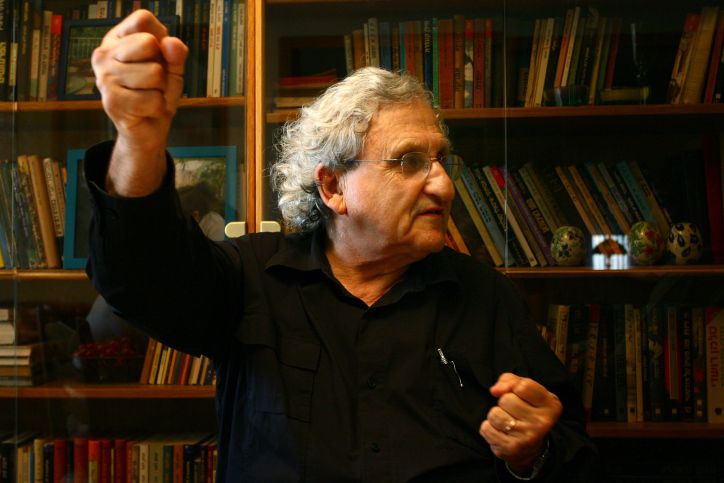My first experience reading a book featuring an alternate history was the classic Philip K. Dick novel, “The Man in the High Castle”. The appeal of it in an imperfect world was “what if” events turned out differently?
Dick envisioned a past where World War II left Japan to occupy the Pacific coast, Germany to rule the eastern half of the country, and a remnant of the United States government centered in Colorado. As a teenage reader, this was my first experience with sci-fi that lacked spaceships and was rather immersed in history.
The second novel I read had a more familiar futuristic narrative. In “The Proteus Operation”, author James P. Hogan envisioned an alternate history of World War II where scientists traveled through time to prevent the Nazis from taking over the world. In doing so, the Future Team has created a new timeline that is reality as we know it.
The only other novel I read with a similar focus was the first book in Harry Harrison’s “The Stars and Stripes” trilogy. It was an alternate history book on the Civil War, but not a book where the South won, but where England declared war on the Union.
The idea of ​​a multiverse with different realities has been a popular theme in science fiction. Alternate history has become a popular subgenre, creating fictional worlds that diverge from known and documented events in our reality. Many scenarios play on the “lack of a nail” theory, which projects what would have happened if a person had been murdered or not, or if the outcome of a strategic battle had been different.
The popularity of alternative history stories is due to the same reason people watch tragic TV series or disaster movies for entertainment. They can escape reality for a short time, and the description of such fictitious difficulties makes their own actual struggles light in comparison.
The two most popular “what ifs” in history concern Germany which won World War II and the Confederation which defeated the Union.
In my youth, I must admit that I had a historical fascination with both. I was exposed to countless WWII documentaries – which practically celebrated Nazi achievements in their forensic analysis – and grew up around Confederate memorials – which saluted the honor and nobility of men. who took up arms against the United States.
It was therefore reasonable for any child in this environment to wonder how the fortunes of war could have changed at some critical moments and what form the altered direction of the world could have taken.
But as interesting as it was in my youth to academically re-imagine the outcome of a victorious South, to understand how close such a possibility had been after the first losses of the war – like the Battle of Chancellorsville in 1863, it was also with relief and gratitude that such a reality never existed.
I don’t want to imagine a world where Nazi Germany ruled all of Europe, where the white supremacist regime of Confederation supported their monstrous nation and maintained the institution of slavery.
But I find myself living in a world where many of my fellow citizens wish these terrible consequences had happened. The condition is not a sad alternate story, it currently exists in the minds of those who would like to make it a reality.
Today’s white supremacists and Republican supporters of former President Trump are already embracing an alternate reality. By promoting The Big Lie, inspiring fear and infusing social media with authoritarian messages, they are forging an alternate story that goes beyond laundering.
When Trump loyalists led an insurgency against the nation’s Capitol on January 6, the Confederate flag – a symbol of betrayal against the United States – was prominent in the hollow halls of Congress. It was something that even the Confederate forces themselves had not realized. And although no Nazi flag was seen fluttering, many symbols of Hitler’s regime featured prominently as tattoos on those who assaulted the center of American democracy.
This is why, as an adult, I view the fictional genre of alternative history with disdain, as it is a tool that can be used to deliberately cover up compromising facts about the horrors of white supremacy.
One example is the trilogy of novels by former Speaker of the United States House of Representatives Newt Gingrich and William R. Forstchen. The first book “Never Call Retreat” begins with General Robert E. Lee’s victory at Gettysburg, and continues to elevate him as a hero.
Such ridiculous stories remind me of my own classroom indoctrination in the Georgia public school system, where I was taught to also admire Lincoln and Lee as equal figures of nobility. Lee was loyal to his state of Virginia, but a traitor to the United States. And the white supremacists assassinated Lincoln without any repercussions on Confederation.
The obstruction of an investigation into the Jan. 6 insurgency has so far proven that white supremacist patriots can continue to attack the foundations of democracy without punishment, backed by their Republican co-conspirators in Congress.
While violent novels like “The Turner Diaries” by William Luther Pierce are used to promote revolution, there has not yet been a comprehensive ideological adoption of alternative history to advance right-wing propaganda.
The rejection of Critical Race Theory (CRT) and attacks on its discussion are linked to this distortion of history. The idea behind CRT is to examine how racism affects structural and institutional systems. This adds race to the equation of social, cultural and legal issues.
It is difficult to know where alternate history and alternate reality diverge for those invested in manufacturing fabrications over our modern reality. But the end result remains the favorite entertainment platform of white supremacists and their efforts to circumvent justice.
 Zoo Book Sales
Zoo Book Sales



